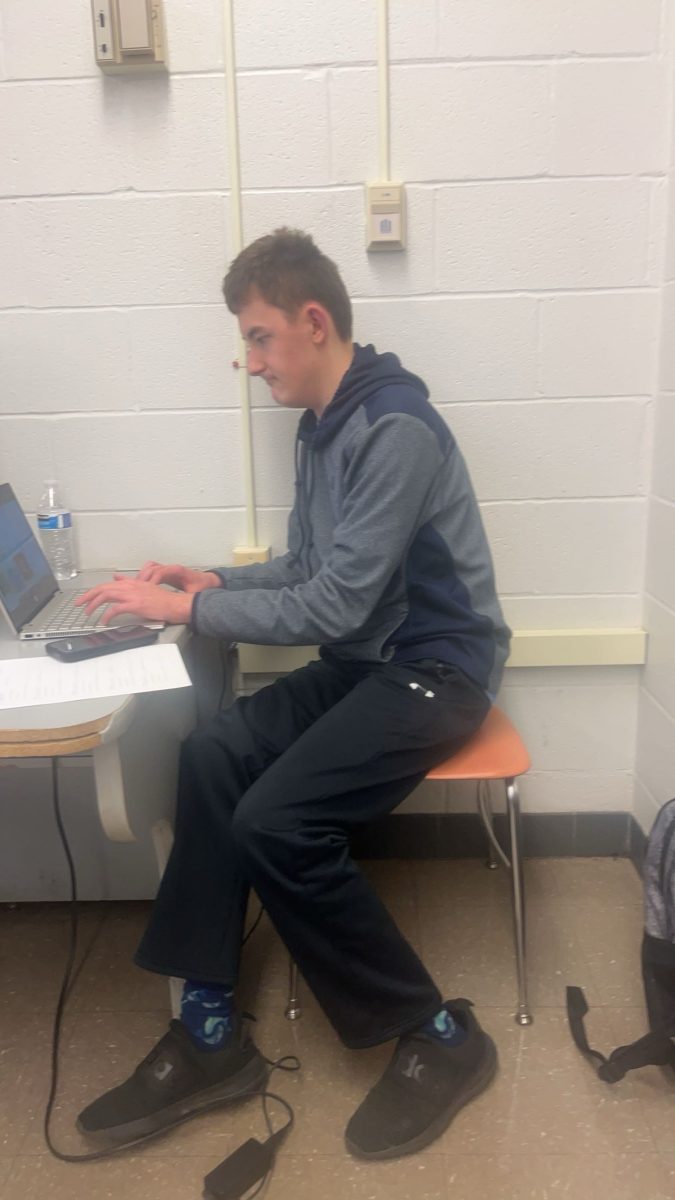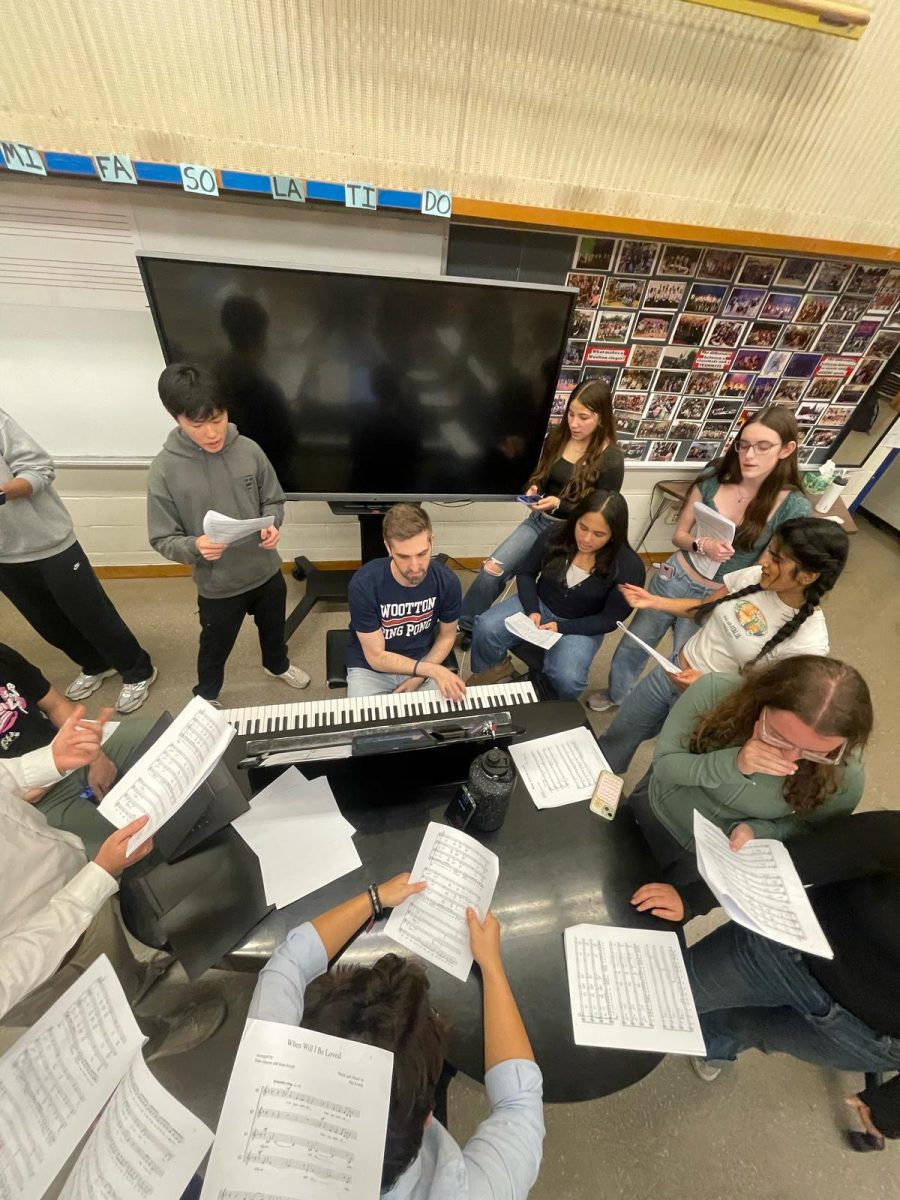A 504 plan provides accommodations for students with learning disabilities, but there is a dispute among teachers and students about whether or not teachers do enough to help accommodate these students.
A 504 plan is obtained when a student is diagnosed with a learning disability such as ADHD (Attention-Deficit/Hyperactive disorder) or dyslexia. After a student gets diagnosed with a learning disability, a meeting is held with the student’s counselor, parents and typically another administrator. In this meeting, the parents and students discuss the student’s struggles in school, and what the students’ 504 plan would include to better support them. After this initial meeting, the student, counselor and parents will meet again depending on the student’s needs, to check up on how much they use accommodations and if they need to add or remove any accommodations from their 504 plan.
Once the accommodations are established, it is the responsibility of the student to use those accommodations accordingly. “I think 504 plans can be very helpful for students, but it’s only if they allow it to be. If the student doesn’t use the accommodations or chooses not to, then it’s hard for the accommodations to make an impact,” counselor Jennifer Taylor said.
Students can obtain 504 plans at different stages in their academic life, and reasons vary depending on the student. For example, my sister, senior Ellie Mollica, just this year got diagnosed with ADHD. As soon as she was diagnosed, my parents got to work to make sure she had a 504 plan for not just this year but college next year as well. In contrast, I have had a 504 plan since kindergarten, when I was five. “I think that my 504 plan has given me assistance in my classes. It is really helpful to have extra time because my brain processes things a lot slower due to my ADHD,” Ellie Mollica said.
Teachers are legally obligated to allow students to use their accommodations and parents can and have sued schools for not allowing students to use their accommodations. At this school, there have been instances where teachers will allow students to use accommodations but only to an extent. Although students have to make sure that they are not abusing accommodations such as frequent breaks, it is unfair for teachers to limit a student’s use of their accommodations. “My 504 plan does help, and I know that it is a privilege to have, so I make sure not to use my frequent breaks too much so my teachers know that I am being responsible and not abusing my privileges,” junior Kai O’Brien said.
Teachers may say that accommodations make planning challenging. For example, an accommodation for preferential seating can be particularly hard for teachers to provide, as students prefer to sit in different places. When it comes to a situation where two kids want the same seat, it can make it difficult to rearrange seating charts so that both students are satisfied. For example, there was one occasion when three other students and I, who all had preferential seating, wanted to sit in the same spot, but only one of us could sit there, so the teacher ended up giving one student the seat and the other student and I had to choose somewhere else.
There are accommodations that students may not use often, such as extended time on tests or noise-canceling headphones, which in turn can cause teachers to forget that a student has these accommodations. “There are times when teachers may not acknowledge my accommodations, especially when taking tests in a quiet space, and even getting extra time can be a struggle,” Ellie Mollica said.
For students, it can seem as though teachers do not even try to provide accommodations. From my own experience, it can feel as if teachers are shaming me for having a 504 plan because it gives them more work to do. I have had teachers who I will ask for permission to use my frequent break accommodation and they’ll roll their eyes before letting me go. “I think some staff helps but also some staff makes you feel like such an inconvenience for having it,” an anonymous senior girl said.
In my personal experience, even after telling my teachers I have a 504 plan, my teachers do not always allow me to use my accommodations. For example, I often try to stand at the back of the class when I get overstimulated so I can move around while still being able to listen to the lesson, but I get told to sit back down often, and when I bring up that I have an accommodation that allows me to stand up and move around, I am told to stay after class to talk about it.
I understand everyone’s experience is different, and that there are many sides to this debate. In my experience, the accommodations don’t help nearly as much as they should. Accommodations should be a rock that students can rely on to make sure that they are doing as well as they can be in school, not something that students should have to continually defend in order to be able to learn effectively.







![The 2025-2026 Editorial Board Alex Grainger, Cameron Cowen, Helen Manolis, Emory Scofield, Ahmed Ibrahim, Rebekah Buchman, Marley Hoffman, Hayley Gottesman, Pragna Pothakamuri and Natalie Pak (Chase Dolan not pictured) respond to the new MCPS grading policy. “When something that used to be easy suddenly becomes harder, it can turn [students’] mindset negative, whereas making something easier usually has a better impact. I think that’s where a lot of the pushback comes from. But if you put emotions aside, I do think this change could help build stronger work ethic,” Ibrahim said.](https://woottoncommonsense.com/wp-content/uploads/2025/09/fqr5bskTXpn0LRQMmKErLuNKdQYBlL726cFXBaWF-1200x900.jpg)
